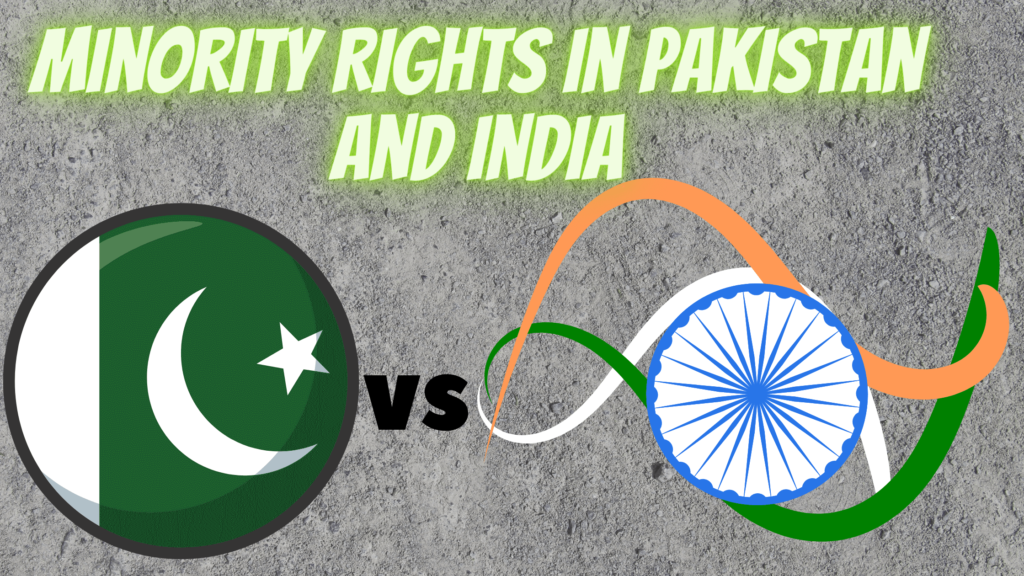Minority Rights in Pakistan and India are important to any democratic society, ensuring equal treatment, protection, and representation for marginalized communities. In the context of Pakistan and India, both countries have diverse populations with significant minority communities. However, there are distinct differences in how minority rights are recognized and protected in these nations. This article aims to shed light on the contrasting approaches to minority rights in Pakistan and India.
Minority Rights in Pakistan and India

Constitutional Framework
Pakistan: The Constitution of Pakistan guarantees certain fundamental rights to minorities, including the freedom of religion, equality before the law, and the right to participate in public life. The Constitution also establishes a separate electorate system, ensuring reserved seats for religious minorities in the national and provincial assemblies.
India: The Constitution of India provides comprehensive safeguards for minority rights. It recognizes and protects the religious, cultural, and educational rights of minorities. The principle of secularism is enshrined in the Constitution, ensuring equal treatment for all citizens regardless of their religion.
Legal Protections
Pakistan: Despite constitutional guarantees, minorities in Pakistan face challenges in the implementation and enforcement of their rights. Incidents of discrimination, persecution, and violence against religious minorities have been reported. Blasphemy laws and forced conversions remain areas of concern, impacting the rights and security of minority communities.
India: Indian laws provide robust protections for minority rights. Anti-discrimination laws prohibit discrimination based on religion, and specific legislation addresses issues such as hate speech and communal violence. The National Commission for Minorities has been established to safeguard the interests of minority communities and address their grievances.
Religious Freedom
Pakistan: While Pakistan recognizes Islam as the state religion, it also pledges to protect the religious freedom of minorities. However, incidents of discrimination and persecution based on religious beliefs persist. Religious minority groups often face societal pressure, restrictions on religious practices, and limited access to places of worship.
India: India upholds the principle of religious freedom, allowing individuals to freely practice and propagate their religion. The country embraces a pluralistic ethos, where various religions coexist harmoniously. Places of worship for different religious communities are protected, and the government strives to ensure communal harmony and religious tolerance.
Representation and Participation
Pakistan: Reserved seats for minorities in the national and provincial assemblies aim to ensure their representation in the political sphere. However, there have been concerns regarding the effectiveness of this system, with limited minority representation and challenges in securing meaningful political participation.
India: Minority communities in India actively participate in the political process. They hold significant positions in the government, legislature, and public administration. Political parties often cater to the interests and concerns of minority groups, recognizing their importance in the democratic fabric of the country.
Conclusion: While both Pakistan and India recognize the importance of minority rights, there are notable differences in the implementation and protection of these rights. India’s constitutional framework and legal provisions offer more comprehensive safeguards and protections for minority communities. However, challenges persist in both countries, and continued efforts are required to address issues of discrimination, violence, and socio-political inclusion of minority groups. Upholding minority rights is crucial for fostering inclusive societies and strengthening the fabric of democratic nations.
To read more in Hindi Click Here
To read more in English Click Here


